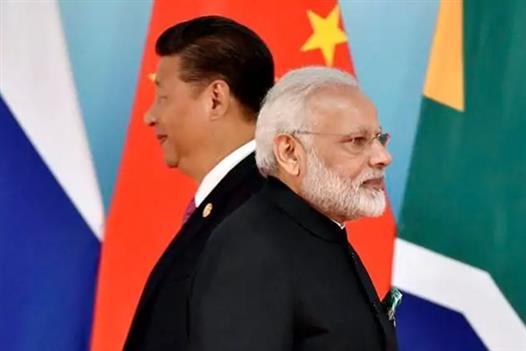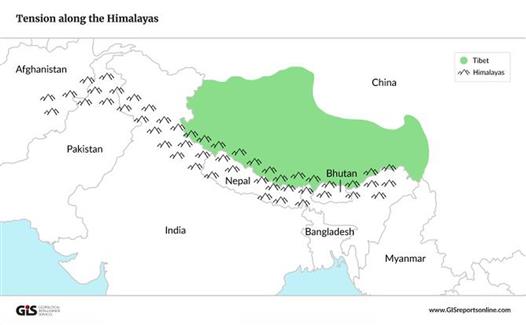
July 9 (Lagos) - Last week the Government of India banned more than 50 internet apps based in China after the communist country entered Indian territory in the Northern province of Ladakh high up in the picturesque Himalayas.
The tensions between the two most populated nations in the world rose after Chinese troops entered Indian territory without provocation and met Indian army ready to stand up for the nation under the leadership of Prime Minister Narendra Modi. A physical fight ensued between the soldiers from the two sides who beat each other with stocks and stones. There was no gunfire because the two nations have pledged to not use firearms in the region. That did not stop violence and almost 20 Indian soldiers were martyred and there are rumors that more than 40 chinese were killed although the official figures are never revealed by the communist nation. What is known is that Chinese troops had to retreat after India decided to stand up and defend their nation for a change. In the past the Chinese have been able to take control of Indian territory as the past Indian governments have been weak and lacked decision making to stand up to the communists. This time they are dealing with a nation being led by a dynamic and strong democratically elected government.

Just like the secrecy over the Coronavirus outbreak, China did not release information about exactly how many of their soldiers were killed by the small number of Indian soldiers who defended their territory with sticks and stones. However on the Indian side, there was an out-pour of anti-China sentiment after the figures of the martyred soldiers was released and people pledged to stop using Chinese products at least for the time being.
There were numerous cyber attacks on Indian websites which were traced back to China the week followed the altercation in the Himalyas.
The government listened to the people and banned more than 50 internet apps in the country such as tic-tok which had more than 350 million daily active users in India according to sources. This dented the growth trajectory of the Chinese apps and as a result it put pressure on their government to de-escalate tensions with India.
As a result of banning of Chinese apps, there has been a strong growth in Indian apps which can do the same things in a better way, keep data in the country and not give the Chinese companies the opportunity to spy on their citizens.
Chinese internet companies are backed by the communist regime and what that means is that they can access data of millions of people worldwide through the servers of such companies which are required by Chinese laws to be kept in their country only with full access to the government.
China does not allow use of popular websites such as Google and face book because they are not Chinese so it was time someone gave them a dose of their own medicine, and that is exactly what the Indian government did. There is a good chance that other countries will follow India and ban these Chinese apps on safety and security grounds.

Nigeria can take this example and use it to create an ecosystem of local apps and websites so Nigerians do not have to rely on Chinese internet companies to do basic file sharing online. This will create millions of jobs for Nigerians and this is what the country needs right now. Why do we need to keep selling ourselves to people who do not even treat us well in their own country?
Nigeria can create an internet powerhouse in Africa if its leaders can stand up to Chinese apps. There is huge talent base that exists in the country but the government is not doing anything to support these young internet developers and programmers.
India already has a largest software industry in the world and now they have started making apps for themselves so expect massive growth in that sector in the coming years. That means billions of dollars will be saved or prevented from flowing out of the economy in the form of online advertisements and transactions.

But its not just about the money. Standing up to China's aggression is important because the communist country thinks they can just walkover any sovereign nation and take it over. Peaceful Buddhist Naion such as Tibet were forcefully annexed by the Chinese and their leader the Dalai Lama (Photo) was forced into exile in India in the 1950's. The world chose to remain quiet because Tibet do not have the economic might that China does.
Even today it is easy to see how the African continent is being taken over by the Communist party as they are awarded huge contracts by corrupt African leaders to build roads, bridges and basic infrastructure. African people will have to stand up because their leaders are hopelessly corrupt and sell out to China for every contract.
USA has already signaled they will stand with India in case of any further provocations by China and other democratic nations have to make up their minds where they stand.
Democracies must stand united. Even our website could come under attack in the coming days by China hackers for writing this article but we decided to stand up for freedom and democracy.
reporting for easykobo.com on Thursday, July 9 2020 from Lagos, Nigeria